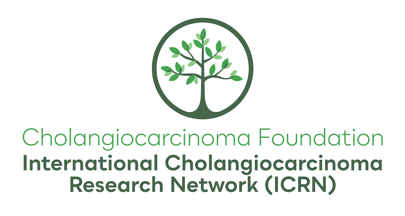Laura Goff, MD, MS

| Name | |
| Laura Goff | |
| Organization | |
| Vanderbilt-Ingram Cancer Center | |
| Can you tell us a bit about yourself? | |
| I claim many "hometowns" as I was born in Chicago, spent all holidays in my parents' hometown of Wichita, Kansas, and grew up outside of Dallas, Texas. I moved around through training at Duke, UT in San Antonio, UT Southwestern and was fortunate to land at Vanderbilt-Ingram Cancer Center for fellowship where I have happily stayed put ever since! Systemic therapy for hepatobiliary cancers was really just beginning, and I was hired to develop our program of clinical trials. In addition to my research, I served as the Associate Program Director for our Hematology-Oncology Fellowship for 10 years and now serve as the Executive Medical Director for the Cancer Patient Care Center at Vanderbilt University Medical Center. I am lucky to have an extremely supportive husband who works in residential architecture and brings that creativity to balance my pragmatism as we raise our much loved son and miniature schnauzer, Dolly (after Ms. Parton). | |
| Can you share one or two of your specific research interests? | |
| I am primarily focused on finding new and better treatments for patients with hepatobiliary cancers particularly through early-phase clinical trials. | |
| Why did you decide to specialize in hepatobiliary cancers? | |
| Out of sheer coincidence, I did a visiting rotation at Memorial Sloan Kettering and was assigned the hepatobiliary consult service. I loved working with the patients and the multidisciplinary teams. In residency, my favorite attending and upper level resident were both gastroenterologists. I loved thinking about GI problems but had no interest in procedures.
What I did love was drug development and patients with hepatobiliary cancers had (and still have) tremendous need for new treatments. Because Vanderbilt is a large liver transplant center, our population of patients was growing just as I was finishing fellowship and we definitely had a need to care for these patients. For me, it was a natural fit. |
|
| Can you describe one of the unforgettable moments in your patients care or research that has impacted your career? | |
| Honestly, the formation of a working group at one of CCF's earliest meetings impacted my career most by establishing cross-country collaboration opportunities and helped highlight how I can make meaningful contributions in these rare cancers. Dr. Katie Kelley, Dr. Maeve Lowery and I were grouped together at that meeting. Over time, our network has expanded with a common mission of generating good studies while supporting each other in the clinical care of our patients. | |
| Can you tell us one thing collaboration with colleagues could accomplish that you could not accomplish on your own? | |
| Everything requires collaboration! CCF recognized this early on and somehow got all of the best minds in the world to work together. | |
| If you had access to one resource that would move your research forward, what would that resource be? | |
| More time | |
| How did you learn about the Cholangiocarcinoma Foundation? | |
| I was introduced to Marion Schwartz by my mentor, Dr. Jordan Berlin while I was still a fellow. He planned to hand over the responsibilities for hepatobiliary tumors at Vanderbilt-Ingram to me and knew to make the connection. | |
| Can you tell us why you became a member of the ICRN? | |
| Becoming a member of the ICRN was a no-brainer. I'm passionate about advancing the care of patients through collaborative clinical trials which is right in line with their mission. Moreover, it is run by such smart, kind, outstanding people that I wanted to be a part of it. | |
| If you are one of our Cholangiocarcinoma Foundation Fellowship awardees, how has this Fellowship impacted your career? | |
| n/a | |
